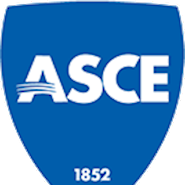ASCE has honored President Joseph R. Biden Jr. and Feniosky Peña-Mora, Sc.D., P.E., NAS, CCM, F.CIOB, NAC, Dist.M.ASCE, with the 2023 ASCE President’s Medal.
President Biden is recommended for understanding the role of infrastructure on the health, welfare, and safety of all Americans, establishing policy and funding at a scale not seen in decades, incentivizing repatriation of the industrial complex, and understand the importance of resilience in codes and standards. Dr. Peña-Mora is recommended for leading a fast-track, volunteer effort to deliver a new ASCE transformative strategic plan that speaks both to internal and external audiences, which is comprehensive as well as highly responsive to the changing needs of the civil engineering profession.
Biden in 2022 led Congress to pass, and signed into law, the Infrastructure Investment and Jobs Act (IIJA). This legislation had been a long time coming. The IIJA has provided significantly needed funds for infrastructure, while better addressing sustainability, resiliency, safety, and equity. In addition, the bill establishes four programs to target resiliency, carbon reduction, electric vehicles, and bridge rehabilitation.
In 1988 President Ronald Reagan created a commission to investigate the conditions of America’s infrastructure. The results were not positive and needed improvements received minimal action. In the 1990s ASCE moved to the Washington, D.C., area to work with Congress to lobby for attention to this issue. They stepped up and created our nationally and globally recognized Report Card on America’s Infrastructure, and since that year, 1998, have followed it with six other report cards, finding each time that the same problems persisted. The Report Card serves as an indicator of what is needed, and in what state and sector.
After decades of hard work by ASCE members and staff, the IIJA is the best action taken by our government officials to address this critical need. The Society thanks President Biden and recognizes his own leading and collaborative efforts.
One of Peña-Mora's most notable accomplishments has been his instrumental role in the successful development and execution of the new ASCE strategic plan. He not only demonstrated strategic and visionary thinking in this undertaking but also showcased a commendable ability to engage with various stakeholders, ensuring all voices were heard. This resulted in a strategic plan that is not only comprehensive but also highly responsive to the changing needs of our profession.
As a past-chair of the ASCE Industry Leaders Council, Peña-Mora consistently demonstrated a strong commitment to strengthening the link between ASCE, academia, and industry practice. His innovative ideas, combined with his excellent communication skills, have helped foster a vibrant dialogue between all parties. His leadership in this role has made a substantial impact on society and the wider industry by encouraging the ILC to highlight the need for ASCE to incorporate future climate change into all ASCE standards, a task which ASCE is currently undertaking.
Furthermore, Peña-Mora's long-standing dedication to justice, equity, diversity, and inclusion in civil engineering education and practice sets an example for us all. He understands that for our profession to continue to grow and excel, we must tap into the skills, perspectives, and ideas of all individuals.
The ASCE President’s Medal recognizes the accomplishments and contributions of eminent engineers to the profession, the Society, or the public.



